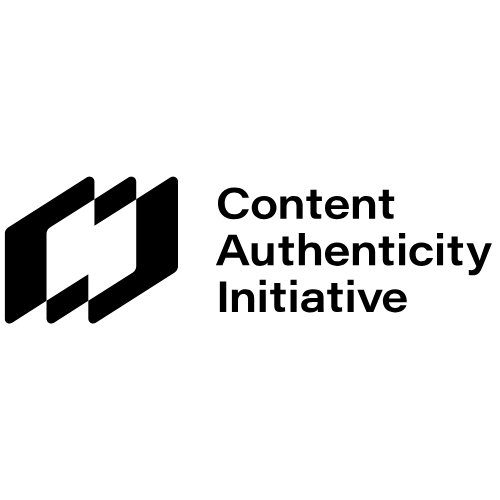.avif)
Tymlez (CarbonCentral)
Carbon Central, developed by Australian tech firm NoviQTech, is an enterprise-grade software platform designed to help large organizations manage the complexities of carbon accounting and environmental, social, and governance (ESG) reporting. The platform provides a unified, end-to-end solution for companies to measure, analyze, and report on their environmental footprint, particularly their Scope 1, 2, and 3 carbon emissions. It aims to replace disparate spreadsheets and manual data collection methods with a single, auditable system of record.
The platform is built on the Hedera network, leveraging its technology to bring a high level of integrity and trust to the ESG data management process. A key feature of Carbon Central is its use of the Hedera Consensus Service (HCS) to create an immutable and verifiable audit trail. As enterprises input emissions data, supplier information, and other critical ESG metrics into the platform, a cryptographic hash of that data is submitted to the Hedera public ledger. This process provides a tamper-proof timestamp and a transparent, auditable record that can be securely shared with and verified by regulators, investors, and other stakeholders.
Project Information
Related Projects

The Reptilian Secret Society is a "play-to-earn" NFT project and decentralized community built on the Hedera network. It’s centered around a fictional universe where a secret society of reptilian beings has infiltrated every aspect of human society.
The core of the project is its series of NFT collections, starting with the "Genesis" collection of 10,000 reptilian characters. These NFTs serve as both digital collectibles and membership tokens, granting holders access to "The Syndicate," the project's decentralized autonomous organization (DAO). Ownership of these NFTs also provides access to various "play-to-earn" features, including the ability to stake NFTs to earn the project's native utility token. The ecosystem also includes a marketplace for trading the NFTs and a breeding mechanic that allows owners to create new "hybrid" NFTs.
The Reptilian Secret Society uses the Hedera Token Service (HTS) to mint all of its NFTs and fungible tokens, which ensures low, predictable transaction fees and fast, secure transfers.

Metacourt is a virtual metaverse platform created in an official partnership with Tennis Australia to extend the fan experience of the Australian Open (AO). It provides a 3D digital recreation of Melbourne Park, the tournament’s physical grounds, allowing a global audience to explore the venue, interact with other fans, and stream live or historic matches from within the metaverse.
The platform leverages the Hedera network to power its digital asset strategy including its central feature, the "AO Art Ball" NFT collection, which consists of thousands of unique NFTs linked to specific 19cm x 19cm plots of the real-world tennis courts. When a winning shot from an official match lands on a plot, the corresponding NFT is updated in real-time with match data, and its owner is rewarded with exclusive utility, such as match footage or merchandise.
Metacourt a novel, gamified experience secured on the Hedera blockchain network to provide fans with verifiable ownership of unique moments in tennis history.

Hashport is an interoperability solution designed to connect the Hedera network with other major blockchain ecosystems and enable the transfer of digital assets across distributed ledgers. It functions as a public utility, facilitating bidirectional token bridging, which allows users to move assets from one network to another.
The platform supports connections between the Hedera blockchain network and other prominent blockchains such as Ethereum, Polygon, and BNB Chain. The process involves users locking their original assets on the source chain to facilitate “porting” of newly-minted, wrapped versions of the original asset to the destination chain. Upon retrieval, the ported asset version is burned on the destination network thus unlocking the original tokens on their native chain.
Hashport utilizes a consortium of independent and reputable validators verify and authorize transactions in order to ensure end-to-end security. These validators monitor events on the connected chains to ensure the integrity of the bridging process. By enabling seamless cross-chain transfers, Hashport plays a vital role in expanding the reach of decentralized applications (dApps) and assets within the Hedera ecosystem.

The Content Authenticity Initiative (CAI) is a cross-industry community founded in 2019 by Adobe, The New York Times, and Twitter to combat digital misinformation and provide a verifiable layer of trust for online content. With a rapidly growing membership of over 4,000, the CAI brings together technology companies, media organizations, and civil society to develop open-source tools and standards that promote transparency and give creators credit for their work.
The primary service of the CAI is the development and promotion of Content Credentials, an open-source technology that functions like a "nutrition label" for digital media. This system allows creators to attach secure, tamper-evident metadata to their content, creating a verifiable record of its origin, authorship, and edit history. This provenance data is cryptographically signed and remains with the content as it is shared and modified. The technical specifications for Content Credentials are developed by the Coalition for Content Provenance and Authenticity (C2PA), a standards development organization co-founded by Adobe.
